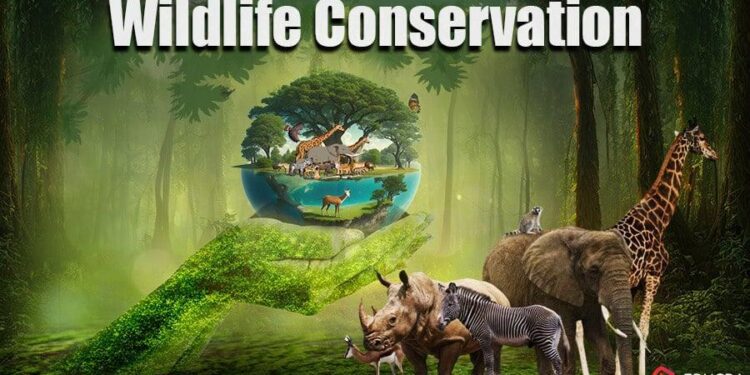Iowa State University has officially renamed its Animal Ecology major to Wildlife and Fisheries Conservation and Ecology, reflecting a broadened academic focus and commitment to contemporary environmental challenges. The change aims to better align the program with evolving career opportunities in wildlife management, aquatic ecosystems, and conservation science. This update underscores Iowa State’s dedication to preparing students for impactful roles in sustaining biodiversity and natural resources in a rapidly changing world.
Animal Ecology Major Transforms to Emphasize Wildlife and Fisheries Conservation at Iowa State University
The department at Iowa State University has officially updated the Animal Ecology major to better reflect the growing importance of wildlife and fisheries management. This shift prioritizes ecological research and conservation strategies aimed at sustaining native species and aquatic ecosystems. Students can now expect a curriculum more tailored to modern challenges, including habitat restoration, population dynamics, and the impacts of human activity on biodiversity. This change positions graduates to meet the increasing demand for professionals skilled in protecting and managing natural resources across diverse environments.
The revised program introduces a range of new courses and experiential learning opportunities, such as:
- Fisheries Biology and Management – focusing on sustainable fish population practices
- Wildlife Habitat Conservation – strategies for habitat preservation and restoration
- Conservation Policy and Ethics – examining laws and ethical considerations affecting wildlife
- Advanced Field Methods – hands-on techniques in data collection and ecological monitoring
| Program Feature | Previous Focus | New Focus |
|---|---|---|
| Core Subjects | Animal behavior, physiology | Wildlife management, fisheries ecology |
| Career Paths | Research, zoology | Conservation, resource management |
| Fieldwork | Basic observation | Advanced ecological methods |
New Curriculum Integrates Hands-On Research and Fieldwork to Address Emerging Environmental Challenges
Iowa State University’s revamped curriculum offers students an immersive experience by combining theoretical knowledge with real-world applications. The program now emphasizes hands-on research projects and extensive fieldwork, allowing students to engage directly with the ecosystems they aim to protect. This innovative approach equips future conservationists with critical skills to tackle urgent environmental issues, such as habitat loss, species decline, and climate adaptation. Students will work closely with faculty on collaborative studies, interpreting ecological data and developing sustainable management strategies.
Key features of the updated curriculum include:
- Field courses conducted in diverse habitats across Iowa and beyond
- Integration of cutting-edge technologies, like GIS mapping and drone monitoring
- Partnerships with local conservation agencies for practical experience
These components are designed to foster a deeper understanding of wildlife dynamics and resource management, preparing graduates for careers in conservation science, environmental consulting, and policy development.
| Course Component | Description | Credits |
|---|---|---|
| Ecological Field Methods | Field data collection and analysis techniques | 4 |
| Wildlife Habitat Management | Strategies to maintain and restore ecosystems | 3 |
| Conservation Policy | Study of environmental regulations and policy impacts | 3 |
Experts Recommend Enhanced Collaboration with Local Conservation Agencies to Boost Student Career Opportunities
Leading authorities in wildlife education emphasize the critical role that partnerships with local conservation agencies play in fostering professional development for students enrolled in Iowa State University’s newly renamed Wildlife and Fisheries Conservation and Ecology program. By aligning academic curricula with real-world conservation efforts, students gain valuable exposure to ecosystem management, field research techniques, and policy implementation. These cooperative endeavors not only enrich classroom instruction but also expand access to internships, mentorships, and employment within regional agencies dedicated to preserving native habitats and wildlife populations.
Experts suggest an integrated approach featuring consistent communication and shared resources between the university and conservation organizations to maximize student outcomes. Suggested collaborative initiatives include:
- Joint research projects focusing on endangered species monitoring and habitat restoration
- Regular fieldwork opportunities on protected lands and fisheries management sites
- Workshops and guest lectures led by seasoned conservation professionals
- Career networking events tailored to the unique demands of local environmental agencies
| Agency | Focus Area | Student Opportunity |
|---|---|---|
| Iowa Department of Natural Resources | Fish and Wildlife Management | Seasonal Internships |
| Prairie Rivers of Iowa | Water Quality & Habitat Restoration | Research Collaboration |
| US Fish & Wildlife Service | Endangered Species Protection | Field Technician Roles |
Wrapping Up
The renaming of Iowa State University’s Animal Ecology major to Wildlife and Fisheries Conservation and Ecology marks a significant evolution in the program’s focus, reflecting growing awareness of environmental stewardship and biodiversity preservation. As the university continues to adapt its curriculum to meet the demands of modern conservation challenges, students can expect a more specialized and future-oriented education. This change underscores Iowa State’s commitment to preparing the next generation of scientists and leaders dedicated to protecting wildlife and aquatic ecosystems in a rapidly changing world.










